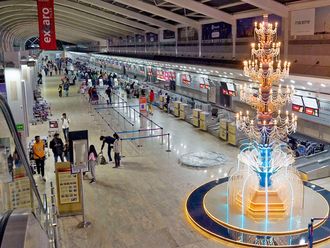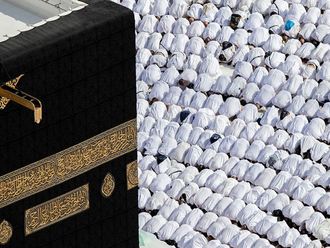New Delhi: The politically crucial east Indian state of Bihar is likely to witness five-phased polling to elect its new 243-seat state legislative assembly.
The autonomous Election Commission of India is expected to announce a detailed polling schedule some time next week. Elections are likely to be held in October-November this year.
The poll panel held a detailed meeting with senior officials of the federal home ministry on Friday to take into account the prevailing law and order situation in the state and availability of central forces for deployment to conduct free and fair elections.
“The home ministry expressed readiness to spare 500 companies of paramilitary forces for Bihar,” an Election Commission official said.
Each company is supposed to have 100 security personnel. That would take the total number of central forces available to the poll panel to 50,000. Polls are likely to be held over one month to enable unhindered movement of security personnel depending upon requirement.
Besides the central forces which form the inner ring around polling stations, the local Bihar police will also be deployed extensively in the outer ring. If needed, state police personnel could be brought from some neighbouring states too, the poll panel official said.
The three-member poll panel headed by Dr Nasim Zaidi is understood to have already given their nod to the tentative poll schedule prepared. A.K. Joti and O.P. Rawal are the other two members of the Election Commission.
The poll panel had recently visited Bihar to review election preparations and expressed its satisfaction. The Election Commission is believed to have agreed with suggestions that the general law and order situation in the state has improved compared to 2010 when polling was held in six phases.
However, like in the past, the emphasis would be to wrap up polling in Maoist-infected red zone in the first two phases before moving to other parts of the state. Maoist insurgents pose the greatest threat to the election process as they either force voters to boycott voting or try to influence them to vote for their chosen candidates in the fray. They do not mind planting bombs or indulge in some killings to ensure their writ run large in the areas they command.
The Election Commission has also factored in clashes between rival political groups considering the state is engaged in a tough contest in which no political party or group enjoys upper hand. Bihar is notorious for political clashes though incidents of use of violence, booth capturing and bogus polling have gone down over the years.
Polling is planned to begin in the second half of October and may spill over to the first week of November.
Bihar chief minister Nitish Kumar is seeking the third straight term in office. His Janata Dal (United) has joined hands with arch-rival Rashtriya Janata Dal of Lalu Prasad Yadav and the Congress party after JD (U) broke its ties with the Bharatiya Janata Party (BJP) in June 2013.
The BJP, which had nearly swept parliamentary elections in the state along with its two regional allies Lok Janshakti Party and Rashtriya Lok Samata Party, headed by then ministers Ram Vilas Paswan and Upendra Kushwaha last year, has inducted former state chief minister Jiten Ram Manjhi’s Hindustani Awam Morcha as its latest allies. These four parties under the banner of the National Democratic Alliance are seen as posing serious challenge to the ruling alliance in the state.












